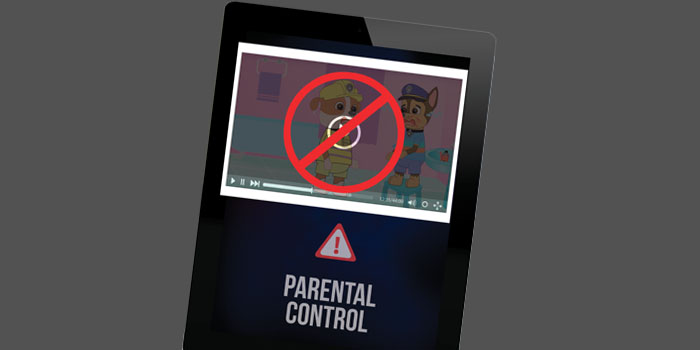
Muscat: Experts are warning parents to closely monitor their children online after a new trick emerged to make money from vulnerable toddlers.
Popular online cartoon characters like Peppa Pig, Spiderman and Paw Patrol are not always what they seem, experts have warned, even if you watch the clip to ensure it is authentic.
Get your essential daily briefing delivered direct to your email inbox with our e-newsletter
Online conmen have stitched authentic introductions and theme tunes to their own malicious content – and some of it is shocking.
Some parents in Oman – who say they always monitor their children online – were shocked to see fake cartoon makers using official opening scenes because they know parents will only watch the opening segment to verify the video is genuine.
The child’s favourite cartoon will appear to be official for around the first 30 seconds to one minute, then morph into horrific images where characters are stabbed, slashed and even beheaded – all for advertising clicks and revenue.
Experts say parents should beware the latest trick and that those responsible are coining it in.
Sites like YouTube pay for every click over a certain number of views. One Peppa Pig episode where the character is beheaded by her father, as her brother watches, has been viewed seven million times – mostly by children.
Uploaders of these videos stand to make plenty of money: online ad policies mean that every time a user clicks on an ad that accompanies a video which has more than 10,000 views, the owner of that video makes money. While individual clicks might not deliver much, millions of clicks could see channel owners receive plenty – all the while leaving youngsters traumatised.
Rebecca Olson checked the video her toddler had selected was safe to view and an official, genuine copy.
“I turned on Paw Patrol episodes for my toddler, left and then heard him screaming ‘I saw something bad!” she recalled. “I came in and saw that the episode had changed after the theme song to being a freaky fake Paw Patrol with a mummy dog that had green tears and was terrorising the other fake pups like a zombie.
“I wondered if it had been even worse, so I re-watched the eight minutes or so and it was just more of the same,” added Olson. “We now use Netflix for him.”
“My son is three years old and he is very fond of videos and cartoons,” said Sana Sabahat, a resident in Oman. “To some extent, it’s good as he’s learned about poems, counting, colours, but on the darker side it has also affected his personality. He has become very hyperactive and fussy. He watches Spiderman cartoons and they often feature unethical acts. “I want channels to have some supervisory option, or these sorts of cartoons must be removed,” she added. Many parents have issues on this and some immediate action must be taken regarding this.”
Ahmed Al Mashry of Sultan Qaboos University’s Department of Electrical and Computer Engineering, has asked parents to monitor what their children watch online.
“Whoever is doing this is very smart because they know that the parents only watch the first few minutes of videos, and if they think it is safe, they’ll allow the children to watch that video,” he said. “This seems to be the newest form of targeting young minds, because anyone can upload videos.
“You don’t really have technology right now that can pre-scan videos, so in my house, these channels are prohibited,” he said. “They can only use it when we are around, and even then, they can visit only a few channels. Other than that, there is no way to trust the content.”
Jassim Al Balushi, Deputy Head of Training and Professional Development at the Caledonian College of Engineering, was also quick to highlight this.
“The minds of children are very vulnerable because they are very young. Now, because of the culture we are in, children are learning bad behaviour by watching these videos online. Any nation will be affected by this. This is a very important issue.
“Parents must have control over all of these websites,” he added. “At home for example, I use a website locker to restrict access to some sites, and only websites I recommend can be visited. If they want to go beyond, they have to call me and I check the site.”
In light of this, Times of Oman reached out to companies that produce website monitoring programmes.
“The internet is a valuable resource for children’s development, and our children today don’t know a world without it,” said Nick Shaw, vice president, Consumer Business Unit, Symantec. “Preventing children from going online is not necessarily the answer - we encourage parents to establish house rules on internet usage based on their age and talk to their children about their online experiences.”
A survey by Symantec – the creators of Norton Anti-Virus and its allied security programmes – found that 86% of the 21,000 parents who were polled were concerned about their child’s online welfare. Yet, despite these concerns, 43% of them only allowed them to access certain websites and apps, while another 40% permitted their children to watch videos only in their presence.
“The Internet has long ceased to be the preserve of grown-ups. Children today are often far more active internet users than their parents,” said Anna Ozolina, Corporate Communications Manager for Kaspersky Labs. “Both parents and children should be aware of the risks they are exposed to as a result of this digital invasion.”